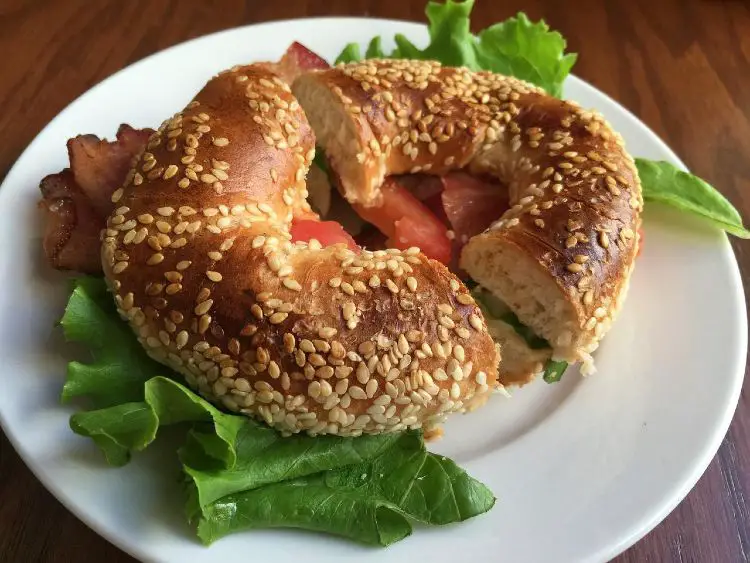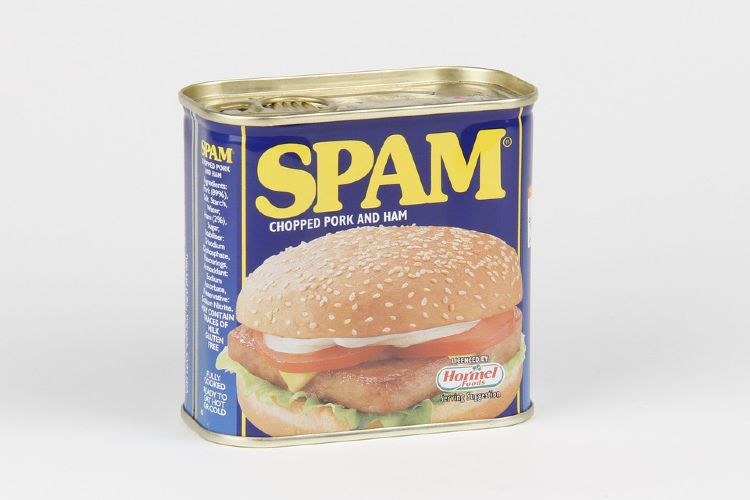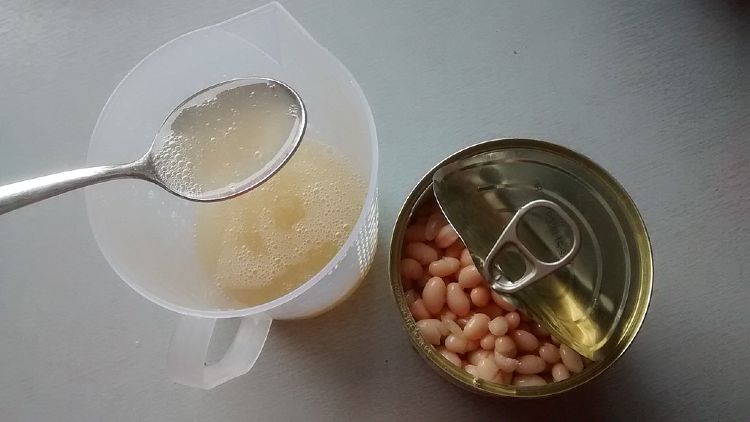Laura Hart at Hart’s Bakery
There is a Bristol foodie shopping and eating triangle delineated by Papadeli, Ruby and White and Harts Bakery at each corner. Literally situated within a stone’s throw of one another, you can quite easily, wheelie stroller pulled behind you, turn your back on the huge Sainsbury’s on the corner of Whiteladies and Alma Road and support independent shopkeepers with just three outings of your wallet.
You might feel a tad despondent about walking down scruffy Hampton Lane, but once you have come up the stairs to Laura Hart’s Bakery the smell of warmth, comfort, crust and sugar envelops you as if you were entering a tucked away country cafe: it is such a beautiful shop. Rough and ready, with a giant, flour covered wooden work table at its centre, you can look at all the tools and ingredients a baker uses in the craft and see the full still-oven-warm array of that morning’s labour.
Laura tells me that her bakery was once the old Quartier Vert cookery school, and she now shares the space with the chefs of Picture House East Restaurant, whose entrance is on the Whiteladies Road. She has only been in business for only a year, and as we sit together over steaming coffees, she admits that some days are easier than others:
“On a Saturday we will easily sell 100 loaves, and all our weekend bakery courses are well over-subscribed, but then there are some Mondays and Tuesdays when we get a lot of left over bread. That’s just the nature of the business, I suppose.”
As well as selling bread and cakes here and teaching others her skills, Laura also has a stall on the Gloucester Road, in front of Planet Pizza, on some Saturdays and she also makes wedding cakes. She manages to source most of her raw ingredients locally, and flour comes from Shipton Mill, home of Clive Mellum, the bread guru who provides help and guidance to so many young bakers all over the country.
“I have had so much help and support from so many people in and around this area. I had only been open about 5 months when The Telegraph food writer Xanthe Clay came to write an article about the bakery. People still talk about having seen that article even now. Mark from Mark’s Bread, the team at Ruby and White, Kate Gover of Lahloo Pantry and so many people on Twitter have all been so kind. Baking is a very lonely and isolated job, it is really vital to have a collaborative community around you where you can share knowledge and resources,” she tells me.
George, her assistant is working around us, at one moment feeding the sourdough, then turning the dough or sweeping, cleaning and tidying. Customers wander in and out, taking their bread with them, still warm in brown paper bags. There is the cheerful, diurnal banter from purveyor to customer and Laura tells me how the same loyal faces have come up that staircase every day since she opened.
As well as George she has two college apprentices and several volunteers, who come to help her in order to learn the craft.
“It would be financially unviable to hire more people,” she explains, “and the government assisted apprenticeship places are really crucial to our work here.”
The time has come for Harts Bakery to leave these premises, because the lease has run out, and Laura is on the lookout for a communal space, if possible, somewhere in the same area:
“It would be ideal if I could share premises, as rents and rates anywhere near a high street are unaffordable for a baker. My ideal vision would be to create a space somewhat like the Town Mill Bakery in Lyme Regis, where people can come and drink tea and coffee and enjoy croissants, cakes, pastries and lunch in a very relaxed, informal, family space.”
The Real Bread revolution is here to stay, we both agree, and although well over 90% of the bread bought in Great Britain is sliced, industrially produced bread from supermarkets, the small minority who are prepared to pay a small premium for artisanal bread is growing and vocal. Of the $3.4 billion spent on bread every year, or 11 million loaves sold every day, master bakers only account for a 5% market share, but the people interested in the provenance of their food and who want to support artisanal producers are loud and proud. Laura tells me,
“I have seen a really marked change in attitudes, and certainly if the number of people coming here to learn how to make their own bread is anything to go by, then there is certainly a great deal of hope for the industry. That is why I do not want to increase the wholesale part of my business. There is a very important link between where food is made and where it is bought, and I think it is important that people are involved. They can see my hands covered in dough when they buy the loaf they are going to eat at home: that is an important connection. They can do the bakery course, they can ask me questions, the whole process is very open.”
Laura arrives at work at 5.30 am and finishes at around 2 pm, although a great deal of time is also taken up in ordering supplies, doing her accounting, replying to e-mails, managing staff issues and, of course, looking for new premises. Despite there being huge electric mixers and croissant rolling machines, the work is, undeniably, very physical and intensive. She confesses,
“I do not have any difficulty at all going to sleep, even in broad daylight, when I get home from a shift. I am so tired, as soon as my head hits the pillow, I am asleep!”
This is a genuinely wonderful business run by a passionate, hard working baker who produces excellent patisserie and breads of all kinds: if you can help Laura’s search for a new shop/café, the contact details are below.
Contact Details
Harts Bakery
Hampton Lane
Clifton
Bristol BS8 2NT
Mobile phone: 07968 220260
Website: www.hartsbakery.co.uk
E-mail: [email protected]
Follow Laura on Twitter: @HartsBakery



